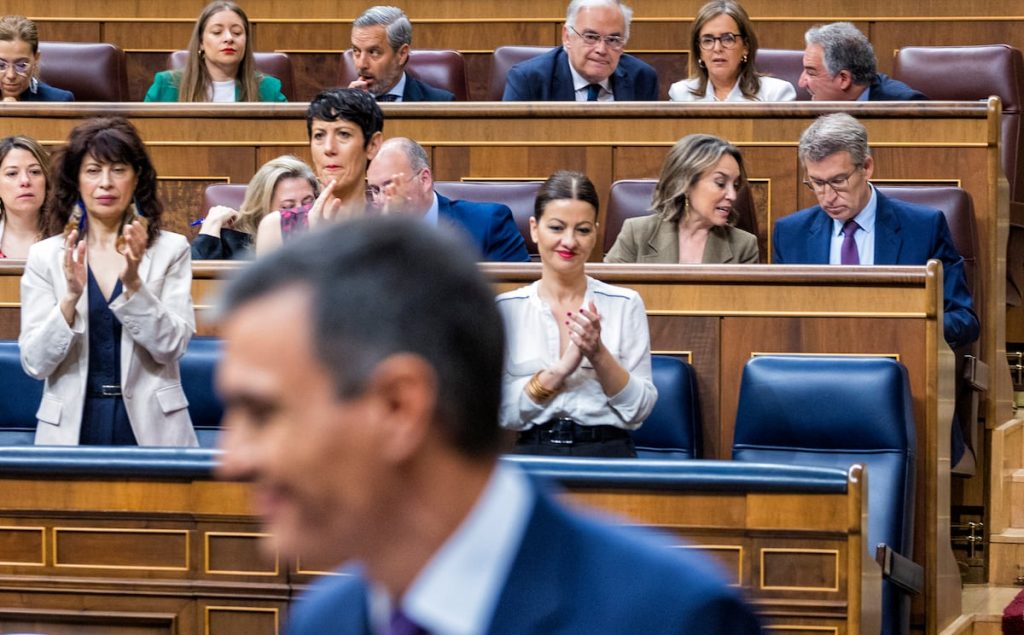The atmosphere inside the Congress of Deputies may seem slow and routine, with politicians focused on their phones, yawning, and whispering. The same faces, the usual corrillos, and the invited guests in the gallery. There are familiar figures who always stick to their script, like Sánchez, Núñez Feijóo, and Abascal. They present themselves as champions of courage and valor, ready to defend the nation, the monarchy, and the unity of Spain at all costs. Amidst the rhetoric, there are moments of predictability and repetition that highlight the theatricality of political discourse.
Alberto Núñez Feijóo, a seasoned parliamentarian, brings his own flair to the proceedings, mixing witty jabs with serious critiques of the government. His speeches are laced with bravado and self-ascribed centrality, appealing to his supporters with populist rhetoric. Santiago Abascal, the Vox leader, takes a hardline stance against government policies, criticizing everything from the Agenda 2030 to immigration. His impassioned speeches are met with amusement by the opposing party, who seem to rely on candy to get through the session.
Other deputies, like Errejón and Gabriel Rufián, offer thoughtful analyses and sharp critiques of the political landscape. They challenge the traditional dichotomies of left and right, urging their colleagues to focus on practical solutions rather than ideological posturing. Rufián, in particular, points out the contradiction of those who benefit from social programs yet support right-wing parties.
As the day progresses, the fatigue and tension in the room become palpable. Patxi López, the Socialist spokesman, praises the courage and dedication of the party leader, Pedro Sánchez, emphasizing the importance of political engagement. Sánchez himself, with his repeated references to “fango” (mud) and “aceitunas” (olives), recommends a book on the decline of democracies, urging his colleagues to reflect on the state of politics outside the chamber.
Ultimately, the scene in the Congress of Deputies reflects the broader disillusionment with the political process among the general public. Outside the halls of power, ordinary citizens continue with their lives, skeptical of the relevance of the debates and maneuverings that take place within. The disconnect between the rhetoric of politicians and the everyday concerns of the people underscores the need for a more responsive and accountable political system.
In conclusion, the political theater in the Congress of Deputies may be entertaining and occasionally insightful, but it ultimately leaves many feeling disconnected and disenchanted with the state of affairs. As politicians spar and pontificate, the real challenges facing society remain unaddressed. Perhaps it is time for a more inclusive and transparent approach to governance that truly reflects the needs and aspirations of the people.


